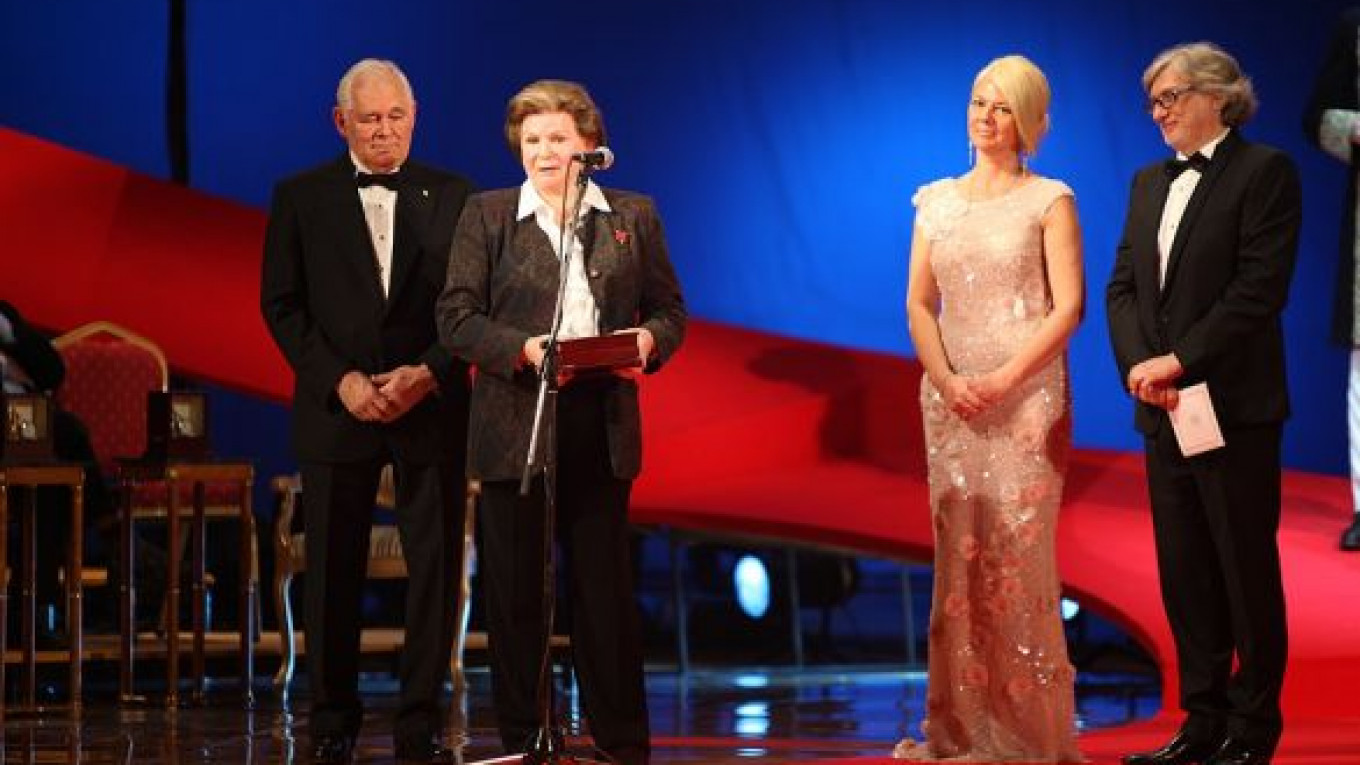If you've never heard of the Russian Nobel Prize, you're not alone. I was completely unaware of it myself until a friend arranged an invitation for me to this year's awards ceremony, which took place at the end of March in Yaroslavl. And not one of the many acquaintances to whom I've since mentioned the prize has had the slightest knowledge of its existence.
The greatly underpublicized prize and the foundation that supports it are named in honor of Ludvig Nobel, an elder brother of Alfred Nobel, whose enormous wealth, derived in large part from the invention of dynamite, lies behind the infinitely better known Nobel Prizes that are awarded annually in Sweden and Norway.
Ludvig Nobel was born in Stockholm in 1831 and moved with his family at a very early age to St. Petersburg, to which his industrialist father, Immanuel, had been invited by the Russian government for the purpose of establishing an armaments factory. Due to a sharp fall in orders for armaments following the end of the Crimean War in 1856, Immanuel Nobel's business became bankrupt and, in 1859, he returned to Sweden. But Ludvig chose to remain in Russia, eventually opening a factory of his own to produce a wide range of military equipment. In the 1870s, he also became involved, together with brothers Alfred and Robert, in exploiting the oil riches in the region of the present-day capital of Azerbaijan, Baku. Leading the brothers' company, Branobel, which at one time produced some 50 percent of the world'soil, Ludvig was responsible for creating the first oil pipeline and first oil tanker and has since been widely referred to as the founder of the Russian oil industry.
Soon after Ludvig's death in 1888, his family applied a part of the vast fortune he had accumulated to establishing a foundation for the purpose of bestowing awards on innovators in industry. The foundation and its awards survived until the Bolshevik Revolution, following which the family's assets were nationalized and the family itself left Russia.
Dormant for nearly 80 years, the Ludvig Nobel Foundation was revived in 2005 and its scope broadened to award prizes "for outstanding professional achievements" in a variety of walks of life. Sidestepping the world of politics and government, its 32 prizes to date have gone to a who's who of prominent figures in Russian culture and the arts, science, medicine, space exploration and sports, and to one foreign citizen of non-Russian origin, the French co-founder of the humanitarian organization Doctors Without Borders, Dr. Xavier Emmanueli.
Yaroslavl was chosen for this year's awards ceremony due to the role it once played as an important center of the Nobel industrial empire. The ceremony itself took place in the city's elegant Volkov Theater, named in honor of Fyodor Volkov, who in 1750 established in Yaroslavl Russia's very first permanent theatrical troupe.
This year's four Russian Nobel laureates included two from the world of sports: Larisa Latynina, Russia's greatest-ever female gymnast, who collected what remains a record total of 18 medals (nine of them gold) at the Olympic Games of 1956, 1960 and 1964; and 89-year-old Mikhail Bobrov, a hero of the Siege of Leningrad and of battles in the Caucasus during World War II and subsequently one of the Soviet Union's, and later Russia's, leading athletics trainers.
A third laureate, cosmonaut Sergei Krikalyov, who participated in six space missions between 1988 and 2005 and holds the absolute record for time spent in space — a total of 803 days, nine hours, 41 minutes and 23 seconds — was absent from the ceremony due to an illness. And the fourth laureate, Baron Eduard von Pfalz-Fein, missed the ceremony owing to the infirmities of old age. Born in Russia 100 years ago this June, Pfalz-Fein fled the country with his family at the time of the Bolshevik Revolution, eventually settling in Liechtenstein, where he set about, among many activities, collecting works of art and historical objects taken from Russia during the Revolution and returning them to their land of origin. He was also the leader of a decade-long and ultimately unsuccessful search for the panels of the Amber Room of the Catherine Palace at Tsarskoye Selo, near St. Petersburg, that were carried off by German troops during World War II.
Unlike its Swedish and Norwegian counterparts, the Russian Nobel Prize carries no monetary reward. Simply a medal, a diploma and the honor of receiving it have apparently been sufficient reward for the prize to be accepted by such illustrious figures as cosmonauts Valentina Tereshkova, the first woman to travel in space, and Alexei Leonov, long-time Bolshoi Theater ballet artistic director Yury Grigorovich, poet Yevgeny Yevtushenko, Pushkin Fine Art Museum director Irina Antonova, pediatrician Leonid Roshal, scientists Sergei Kapitsa and the late Natalya Vekhtereva and hockey legend Vladislav Tretyak.
A Message from The Moscow Times:
Dear readers,
We are facing unprecedented challenges. Russia's Prosecutor General's Office has designated The Moscow Times as an "undesirable" organization, criminalizing our work and putting our staff at risk of prosecution. This follows our earlier unjust labeling as a "foreign agent."
These actions are direct attempts to silence independent journalism in Russia. The authorities claim our work "discredits the decisions of the Russian leadership." We see things differently: we strive to provide accurate, unbiased reporting on Russia.
We, the journalists of The Moscow Times, refuse to be silenced. But to continue our work, we need your help.
Your support, no matter how small, makes a world of difference. If you can, please support us monthly starting from just $2. It's quick to set up, and every contribution makes a significant impact.
By supporting The Moscow Times, you're defending open, independent journalism in the face of repression. Thank you for standing with us.
Remind me later.






